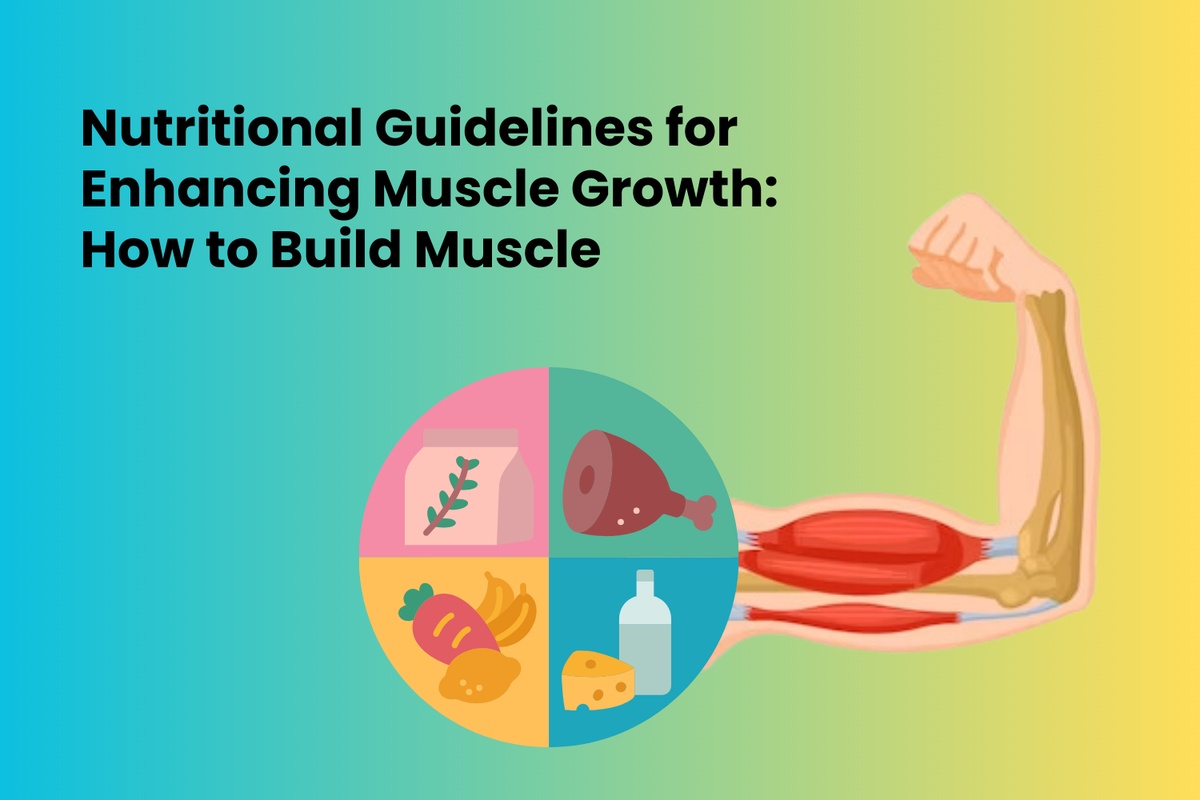Achieving the dream physique of a well-defined, muscular body requires more than just pumping iron at the gym. Nutrition plays a vital role in building and maintaining muscle mass. If you're wondering how to build muscle effectively, you've come to the right place. In this blog, we'll explore essential nutritional guidelines that can help you enhance muscle growth and reach your fitness goals.
Adequate Protein Intake
Protein is often referred to as the building block of muscles, and for good reason. When you engage in resistance training, your muscles experience tiny tears that need repair. Protein provides the necessary amino acids to repair and build stronger muscle fibers.
To enhance muscle growth, aim for a daily protein intake of around 1.2 to 2.2 grams of protein per kilogram of body weight. Lean sources of protein like chicken, turkey, fish, lean beef, eggs, and dairy products can help you meet your protein goals.
Protein Timing
It's not just about how much protein you consume, but also when you consume it. To optimize muscle growth, consider the following:
- Pre-workout: Consuming protein before your workout provides your muscles with a readily available source of amino acids. This can enhance muscle protein synthesis during and after exercise.
- Post-workout: After your workout, your muscles are primed for protein absorption. Consuming a protein-rich meal or shake within an hour of exercise can support muscle recovery and growth.
- Spread it out: Distribute your protein intake evenly throughout the day. This ensures a constant supply of amino acids for muscle repair and growth.
Carbohydrates for Energy
Carbohydrates are your body's primary source of energy. They fuel your workouts and help you push through challenging training sessions. Additionally, carbohydrates are essential for replenishing glycogen stores in your muscles, which can become depleted during intense exercise.
To support muscle growth, focus on complex carbohydrates like whole grains, oats, sweet potatoes, and brown rice. Aim to include these in your pre-workout and post-workout meals to maximize energy levels and recovery.
Healthy Fats
While protein and carbohydrates are often the stars of muscle-building nutrition, don't overlook healthy fats. Healthy fats are crucial for hormone production, including testosterone, which plays a vital role in muscle growth. Incorporate sources of healthy fats such as avocados, nuts, seeds, and olive oil into your diet.
Hydration Matters
Proper hydration is often overlooked in muscle-building discussions, but it's essential for muscle function and recovery. Dehydration can lead to muscle cramps, fatigue, and reduced performance in the gym. Aim to drink enough water throughout the day, and consider adding an electrolyte-rich beverage if you engage in intense exercise or sweat heavily.
Micronutrients and Supplements
While a well-balanced diet should provide most of the essential vitamins and minerals you need for muscle growth, there are some key micronutrients worth mentioning:
- Vitamin D: Adequate vitamin D levels are associated with improved muscle strength and function. You can get vitamin D from sunlight exposure and dietary sources like fatty fish and fortified foods.
- Magnesium: This mineral plays a role in muscle contraction and relaxation. Include magnesium-rich foods like leafy greens, nuts, and whole grains in your diet.
- Creatine: Creatine is a popular supplement that can enhance muscle performance and growth. It works by increasing the availability of ATP (adenosine triphosphate), the energy currency of cells, during high-intensity exercise.
- Branched-Chain Amino Acids (BCAAs): BCAAs, including leucine, isoleucine, and valine, can be taken as supplements to support muscle recovery and reduce muscle soreness.
Remember that while supplements can be beneficial, they should not replace a balanced diet. Consult with a healthcare professional or nutritionist before adding any supplements to your routine.
Caloric Surplus for Muscle Growth
To build muscle effectively, you need to consume more calories than you burn, creating a caloric surplus. However, this doesn't mean you should indulge in unhealthy foods or overeat excessively. Aim for a moderate surplus of 250-500 calories per day to support muscle growth without excessive fat gain.
Monitoring Your Progress
As you implement these nutritional guidelines for muscle growth, it's crucial to monitor your progress. Keep track of your workouts, nutrition, and body composition changes over time. Adjust your diet and training plan as needed to ensure steady progress toward your muscle-building goals.
Conclusion
In the quest to build muscle and achieve a strong, toned physique, proper nutrition is just as important as your workout routine. By following these nutritional guidelines, you can enhance muscle growth, increase strength, and improve overall athletic performance. Remember that consistency is key, and results may take time, so stay committed to your fitness journey and enjoy the process of becoming the best version of yourself. How to build muscle effectively involves a holistic approach that combines proper nutrition, regular exercise, and dedication to your fitness goals.


No comments yet